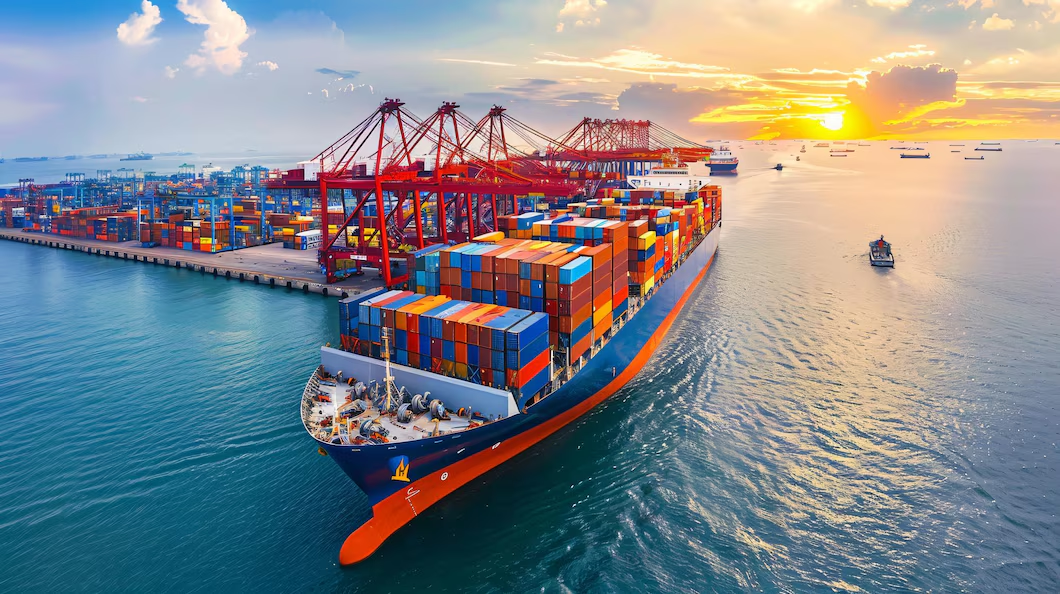The Importance of Proper Documentation in International Shipping
18 Sep, 24
International shipping involves several legal, regulatory, and operational systems. In this instance, documentation is essential to every step of international logistics—it is not merely a routine. It guarantees seamless product movement across borders, helps in regulatory compliance, and fosters openness between shipper and recipient.
Comprehending the significance of precise and comprehensive documentation in international shipping is crucial for businesses seeking to grow internationally without facing legal or administrative obstacles. Global Shippers Rwanda the best international package shipping company are here to assist you.
This post will go over the importance of proper paperwork, what occurs when it doesn't work, and how companies may strengthen this area to facilitate cross-border transactions.
Documentation's function in the shipping process
When shipping goods internationally, documentation is a reliable point of reference for how they should be transported across national borders. It offers essential details such as the kind and quantity of the commodities, as well as their origin and destination, which are required for compliance with international trade rules and customs clearing procedures. Accurate documentation also facilitates payment management, dispute resolution, and shipment tracking, among other aspects of the global shipping industry. Nothing functions well without the proper paperwork; as efficiency depends on legality, a lack of it may result in delays, fines, or even the seizure of shipments.
Types of Shipping Documents
Bill Of Lading (BOL)
An essential document for international shipment is a bill of lading. It serves as a contract between the owner(s) of the items being carried and the carrier. It also acts as a receipt, certifying the shipment of specific objects, stating the conditions under which they must be transported, and providing important tracking details.
Commercial Invoice
One of the documents needed for international trade is a commercial invoice, which lists the goods that have been sold and shipped overseas along with other pertinent information such as the price per unit, quantity, kind, total value, etc. As a result, it helps customs officials to calculate the amount of duties and taxes that will be due while guaranteeing adherence to the applicable rules that control these kinds of transactions globally.
Certificate Of Origin
A certificate of origin is an official document that attests to the nation in which items were made. It becomes crucial for figuring out tariff rates under various trade agreements. Customs also demand it when products are being imported or exported, which has an impact on import controls and other levies.
Packing List
A packing list is an itemized record that is shipped with the goods and includes details about weight, dimensions, sizes, and other relevant information. Its purpose is to make sure that everything is as expected when checking the contents of the shipment upon arrival, thereby facilitating accurate identification at the destination.
Insurance Documents
Insurance paperwork verifies whether a certain item is covered for any loss or damage that might occur during international border passage from one location to another. They provide both parties (shipper and consignee) with financial security and peace of mind by outlining the policy terms and coverage specifics.
Export License and Import License
While an import license facilitates importing activities, an export license enables people or businesses to engage in export commerce. When shipping regulated items internationally, both licenses have to be shown.
Importance of Documentation
Legal Implications
In international shipping, legal compliance depends on having the right paperwork. Each record is a legally binding document that guarantees compliance with international trade laws, customs regulations, and export-import restrictions for shipments. Inadequate or inaccurate documentation might lead to serious consequences including fines or even the seizure of goods. These errors have the potential to halt business operations, damage reputations, and result in legal action. Ensuring accuracy in documentation is crucial to the global commerce system because it facilitates customs clearance and shields businesses from lawsuits and financial damages resulting from noncompliance.
Efficiency of Operation
Proper documentation enhances operational effectiveness in global transportation networks. Clear instructions and information provided to all parties facilitate shipping operations with precise and comprehensive records, minimizing errors and delays. This also holds at clearance points, where being ready expedites procedures and allows cargo to move through checkpoints more quickly.
Additionally, in this digital age, electronic data interchange (EDI) and the usage of electronic documents have transformed shipping like nothing before in history. These software technologies facilitate the fast and precise flow of data, reducing processing times and increasing overall efficiency in tracking, updating, and delivering consignments via international supply chains.
Risk Management
In the international shipping sector, documentation is a fundamental instrument for risk assessment and management. Effective record-keeping reduces the possibility of losses by guaranteeing that all parties involved are aware of the type of cargo being handled and under what conditions. Comprehensive files will be very helpful in proving claims soon enough to simplify the settlement process both legally and peacefully if disagreements arise between linked parties or if damage happens due to things lost during transportation.
There cannot be a smooth-running business relationship between different stakeholders, much less a successful global venture, without a proper understanding of the various aspects of their responsibilities towards each other's property that they deal with. This is especially true when it comes to establishing safe interchange harborside terminus facilities around the world's major ports, as these areas are meant to address financial liabilities related to international shipments and are covered by documentation.
Financial Considerations
International shipping is financially dependent on proper documentation. Precise and comprehensive documentation expedites customs processes, minimizing waiting times for clearance and, consequently, lowering related expenses. Often referred to as trade finance, properly formatted paperwork ensures payment security for all parties involved, facilitating the efficient completion of transactions in the least amount of time.
Improved record-keeping systems can be used to realize cost savings through an effective management strategy, which is when a company optimizes its operations to get the greatest results at the lowest possible cost. This finally results in high profitability levels and the development of a reliable reputation for a company involved in the global business community by reducing costly errors caused by delays.
Technological Advancements
The adoption of new technologies by many nations worldwide will determine the direction of international shipping documentation in the future. By requiring access rights over numerous connected computers, which constitute a network that supports the entire system, blockchain technology integration ensures safe data storage that is impossible to tamper with. This makes it difficult to alter any particular record covertly.
Smart contract automation processes make it possible to carry out a variety of activities related to the shipping process, from payments to compliance checks. This increases efficiency and reduces the possibility of human error when carrying out these tasks manually or in comparison to earlier, more traditional methods. As a result, digitization initiatives should be supported to simplify logistics-related processes globally and make businesses of all sizes that are involved in conducting business internationally more accessible.
Conclusion
Nothing is more crucial than the role of documentation in international transportation. It serves as the foundation for legal compliance, operational efficiency, risk management, and financial stability within the global trading system. As technology advances, we will see significant changes in how papers function when blockchain technology and smart contracts are integrated into these procedures; this will make everything a lot safer and more efficient. To keep things moving smoothly and prevent any hazards, businesses must maintain accurate and full records at all times. Such improvements should not only optimise shipping procedures but also strengthen firms' ability to resist shocks while remaining competitive on a worldwide scale. I believe you will see the need for paperwork in international shipping. For better paperwork, you should contact Global Shippers Rwanda a reputable and best international shipping company in the USA.




